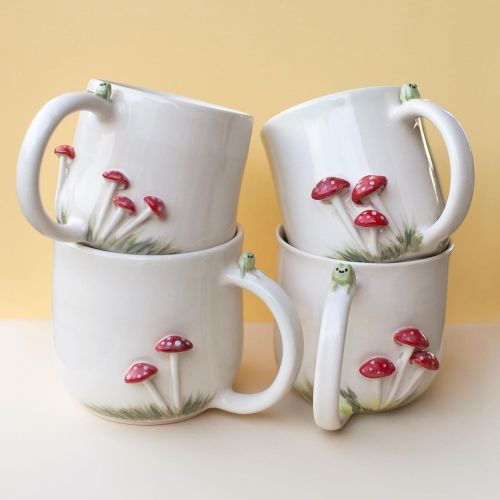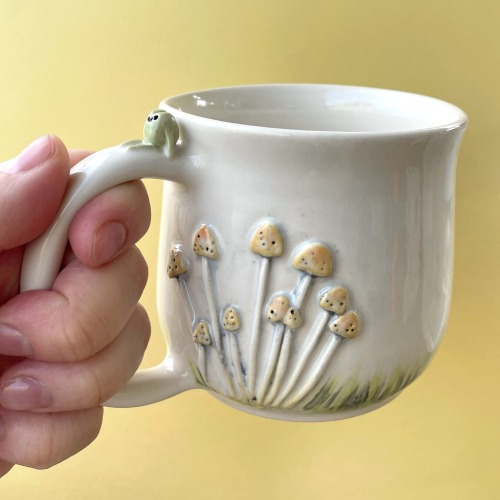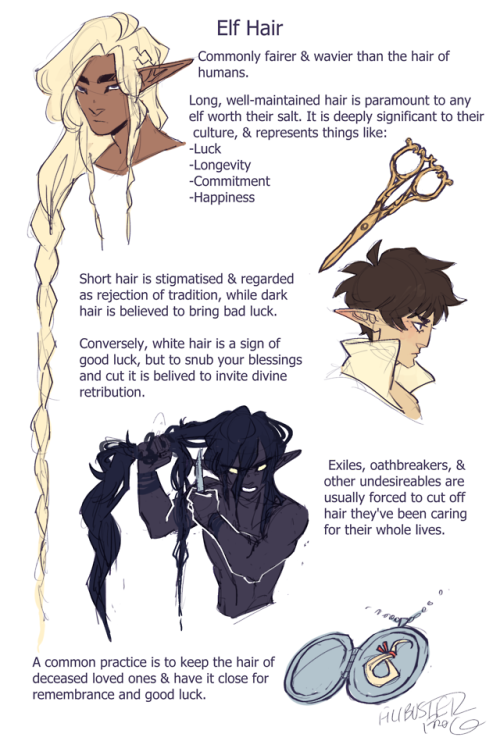How To Make A Story File
how to make a story file
As I am preparing for Camp NaNo*, I have been working on my story file. It occurred to me this might not be common or popular practice. “Story File” is a name I gave it and maybe some of y’all have a different name with the same contents.
*There’s still time to apply to join my Camp NaNo cabin!
My Story File contains everything about my story that doesn’t go in the outline.
It’s broken up into major categories and specific templates. So without further ado, here is how I structure my Story File.
Intro
Title
Logline
Synopsis
Genre
Estimated Total Length (word count)
Draft Length Goal (word count)
Character Bank
Main characters and brief, one-sentence descriptions with ages
Themes and Character Development
Central Question
The Yes/No question that is being asked through the whole story
Should have objective qualities, rather than subjective
i.e. “Will they fall in love?” (subjective) vs. “Will they leave their partners and become a couple?” (objective)
Thematic Questions
These are the internal conflict questions that reside in your character(s) and your story
ex. “Can there really be a successful government?”
ex. “Does grief excuse bad actions?”
Themes at a Glance
Words or phrases that relate to the themes of the story
ex. person vs. nature
ex. isolation
ex. grief
ex. first love
Motivation / Stasis State / Final State
for each main character, you should write a sentence or two pertaining to these three things
Motivation: What is the drive behind this character and their past, present, and future actions? What part of their background makes them the way that they are? What are they looking for? What do they want out of this/a situation?
Stasis State: What are they like before the inciting incident? What problems and questions do they have?
Final State: What has changed about them and their outlook? What questions have they resolved? What has happened to their internal conflict?
Relationships
I usually make a little web of the MCs and their relationship to one another. One for the stasis and one for final.
Stasis: How do these characters see each other? How do they act toward the other? (All before the inciting incident)
Final: How do these characters see each other now? How has their idea of one another shifted?
Even if a character dies before the end, include the most recent relationship status in the Final web.
ex. this is how I organize it, using the Draw feature of Google Docs

Character Bank
This is just a very preliminary character bank. If you prefer a more in-depth one, check out my 6 Box Method.
Per (relevant/important) character:
Name
Nickname/preferred name
Age
Field/Occupation
Physical Description
Personality
Personal History
Education/Occupation History
Extra Notes:
Worldbuilding Bank
(Check out my worldbuilding posts on Categories Pt. 1 and 2 for better context)
Seasons and Climate
Languages
Other Cultural Pockets
Folklore and Legends
Fine Arts
Dress and Modesty
Classes
Jobs
Currency and Economics
Shopping
Agriculture and Livestock
Imports and Exports
Literature, Pop Culture, and Entertainment
Food and Water
Holidays and Festivals
Family and Parenting
Relationships
Housing
Religion and Beliefs
Government
Health and Medicine
Technology and Communication
Death
Transportation
Plants, Animals, and Human-environment Interaction
Education
Beauty Standards
Gender and Sexuality
—————————
I hope this helps y’all and supplements what you’re probably already doing. I know it’s helped me tons to have everything in a central place.
Best of luck!
More Posts from Easthernico and Others
Academic writing advice inspired by Umberto Eco’s ‘How to Write a Thesis’:
Planning
Determine primary sources/bibliography.
Determine secondary sources/bibliography.
Find title.
Brainstorm a table of contents with as much detail as possible (with chapters, sections and even paragraphs and sub-paragraphs - see How to Write a Thesis’ own table of contents as an example at the end of this document) (if the first drafted table of contents is good enough, it will not be necessary to start the writing from the beginning).
Do a first draft of the introduction.
Note-taking and research
Use Google Scholar to make sure you do not miss important sources.
Keep the table of contents in mind when researching and take notes of which sources could go where.
While note-taking, differentiate which parts could be used as quotations from the ones that are simply important for the argument.
Eco underlines the importance of what he calls reading sheets, which can be understood as your notes on your readings. According to him, these should contain:
information about the author if he is not a well-known figure;
a brief (or long) summary;
they should mostly consist of quotations (accompanied by all the corresponding page numbers)
any commentaries you might want to add;
an indication of which part (or parts) of your table of contents the information mentioned belongs to.
Keep reading sheets on primary sources (which should be the longest) separate from those on secondary sources (which should only be 1-2 pages long).
In the end, re-read the notes and color-code all the different parts according to where they would fit in your table of contents.
Writing and editing
A good place to start would be by redrafting the introduction.
Define every key/technical term used/mentioned unless indisputably obvious.
General writing tips:
keep sentences short;
do not be afraid to repeat the subject twice (ex: Roberta went to the shop (…) Roberta bought carrots and tomatoes);
avoid excessive details;
avoid subordinate clauses (orações subordinadas);
avoid vague language;
avoid unnecessary adjectives;
avoid the passive voice.
While drafting, write everything that comes to mind. Leave the editing for the end.
Use your tutor as a Guinea pig. Make them read your first chapters (and, progressively, all the rest) well before delivery is due.
Ask for as much feedback as possible. Ask colleagues, friends and/or family to read your work. They will provide you with more diversified feedback, as well as allowing you to know if your writing is clear to anyone.
Stop playing ‘solitary genius’.
Don’t insist on starting with the first chapter. Start with what you know best and feel more comfortable writing about, then fill in the gaps.
Leave time for editing and try to take at least a one or two days long break in between writing and editing.
Do not forget to fill in the gaps. When you revisit your writing, go through it with all these writing tips in mind as well as a conscience of what your most common mistakes are.
Use Hemingway in the final editing phase.
Quotations and footnotes
Since there are two kinds of sources (primary and secondary), there are also two kinds of quotations: either we quote a text which we will interpret, or we quote a text which supports your interpretation.
Some quotation rules to know:
“Quote the object of your interpretive analysis with reasonable abundance.”
“Quote the critical literature only when its authority corroborates or confirms your statements. (…) when quoting or citing critical [aka secondary] literature, be sure that it says something new, or that it confirms authoritatively what you have said.”
“If you don’t want readers to presume that you share the opinion of the quoted author, you must include your own critical remarks before or after the passage.”
“Make sure that the author and the source of your quote are clearly identifiable.”
“When a quote does not exceed two or three lines, you can insert it into the body of the text enclosed in quotation marks. (…) When the quote is longer, it is better to set it off as a block quotation. In this case the quotation marks are not necessary, because it is clear that all set-off passages are quotes, and we must commit to a different system for our observations. (Any secondary developments [like the quote’s reference] should appear in a note.) (…) This method is quite convenient because it immediately reveals the quoted texts; it allows the reader to skip them if he is skimming, to linger if he is more interested in the quoted texts than in our commentary, and finally, to find them immediately when need be.”
Some footnote rules to know:
“Use notes to add additional supporting bibliographical references on a topic you discuss in the text. For example, ‘on this topic see also so-and-so.’”
“Use notes to introduce a supporting quote that would have interrupted the text. If you make a statement in the text and then continue directly to the next statement for fluidity, a superscript note reference after the first statement can refer the reader to a note in which a well-known authority backs up your assertion.”
“Use notes to expand on statements you have made in the text. Use notes to free your text from observations that, however important, are peripheral to your argument or do nothing more than repeat from a different point of view what you have essentially already said.”
“Use notes to correct statements in the text. You may be sure of your statements, but you should also be conscious that someone may disagree, or you may believe that, from a certain point of view, it would be possible to object to your statement. Inserting a partially restrictive note will then prove not only your academic honesty but also your critical spirit.”
“Use notes to provide a translation of a quote, or to provide the quote in the original language.”

brown eyes










Frog and Mushroom Mugs
Artwork and Cute Things on Etsy
Something for the quarantine💚
Originally from @/heylittlesmile on Instagram! Not my template, i found it on Twitter on some thai celebrity account. If anyone knows this person's tumblr then feel free to let me know💌




Suggestions on how to celebrate your own birthday
eat chocolates and truffles for breakfast
wear that one perfume that’s too decadent, too extravagant for daytime - wear as much of it as you want
pick a volume of poetry. how old are you turning? read as many poems and consider what you can learn from them for the next year - not necessarily regarding morals and deeper meaning. take in the grace and beauty of the words, enjoy their melody
at night, turn off the lights and dance with your moonlit shadow
scatter roses in your own path
enjoy the selfless hedonism of your childhood - play, read, dance and dream wholeheartedly
look at art - in a museum, ideally, but books etc will work as well. recognise yourself in a gesture, a nose, a thought expressed in an arrangement of fruit. recognise that just like those pieces of art depict humans and were made by humans, you are art.
look at your own reflection. fall in love a little.
write down how you’d like to be 12 months from now. be specific, visualise your ideal self. reread those visions once a month.
wear your favourite lipstick. kiss your own wrist. (a lover’s token, a promise)
take every step with grace, feel roses woven in your hair and gold dripping from your fingertips
indulge in sensual luxuries
write a love letter to yourself, to be opened on your next birthday
even if you don’t have the time or the means for grand gestures - treat every little thing you do today as a gift to yourself.
feel the centre of your universe shift, ever so slightly, until the sun rises for you.
i still hate y’all bitches who say oc x canon shit is cringe like bitch you have ANY idea how flattered i would be if someone made an oc for my fantasy world? how utterly PSYCHED my ass would be they loved a character so much they fleshed out one themselves just 2 be with one of mine? fuck y’all haters

Keep the flame going for those we have lost to suicide.






Follow me on Twitter for more vampire nonsense

updated elf hair!!
So yeah
OK new game. Use this website to see how common your first name is, and then put that number in the tags.
-
 adorable-bookworm liked this · 2 weeks ago
adorable-bookworm liked this · 2 weeks ago -
 aaustinwrites reblogged this · 2 weeks ago
aaustinwrites reblogged this · 2 weeks ago -
 fluctuating-fanby reblogged this · 2 months ago
fluctuating-fanby reblogged this · 2 months ago -
 newdawnhorizon reblogged this · 4 months ago
newdawnhorizon reblogged this · 4 months ago -
 youareshauni liked this · 6 months ago
youareshauni liked this · 6 months ago -
 purewithinsanity reblogged this · 7 months ago
purewithinsanity reblogged this · 7 months ago -
 cottoncandyswirl828 liked this · 7 months ago
cottoncandyswirl828 liked this · 7 months ago -
 violets-in-her-arms-writes liked this · 8 months ago
violets-in-her-arms-writes liked this · 8 months ago -
 cayanaro reblogged this · 9 months ago
cayanaro reblogged this · 9 months ago -
 write-101 reblogged this · 1 year ago
write-101 reblogged this · 1 year ago -
 heckcareoxytwit liked this · 1 year ago
heckcareoxytwit liked this · 1 year ago -
 gugli2 reblogged this · 1 year ago
gugli2 reblogged this · 1 year ago -
 anggiie liked this · 1 year ago
anggiie liked this · 1 year ago -
 pracasphomamlu liked this · 1 year ago
pracasphomamlu liked this · 1 year ago -
 hydrangeahelper reblogged this · 1 year ago
hydrangeahelper reblogged this · 1 year ago -
 saddbawinbuiknif liked this · 1 year ago
saddbawinbuiknif liked this · 1 year ago -
 survivalmotif reblogged this · 1 year ago
survivalmotif reblogged this · 1 year ago -
 gueperheywhitt liked this · 1 year ago
gueperheywhitt liked this · 1 year ago -
 shotgunshellsandfeathers liked this · 1 year ago
shotgunshellsandfeathers liked this · 1 year ago -
 ghostinaditch reblogged this · 1 year ago
ghostinaditch reblogged this · 1 year ago -
 write-101 reblogged this · 1 year ago
write-101 reblogged this · 1 year ago -
 audreycecilemoore reblogged this · 1 year ago
audreycecilemoore reblogged this · 1 year ago -
 arrow-alrakis liked this · 1 year ago
arrow-alrakis liked this · 1 year ago -
 defiancebay liked this · 1 year ago
defiancebay liked this · 1 year ago -
 ghaik liked this · 1 year ago
ghaik liked this · 1 year ago -
 prcrsr-moved reblogged this · 1 year ago
prcrsr-moved reblogged this · 1 year ago -
 nyrafernvale liked this · 1 year ago
nyrafernvale liked this · 1 year ago -
 witch-npc liked this · 1 year ago
witch-npc liked this · 1 year ago -
 margaritalaux-antille liked this · 1 year ago
margaritalaux-antille liked this · 1 year ago -
 detectiveneve liked this · 1 year ago
detectiveneve liked this · 1 year ago -
 estevnys liked this · 1 year ago
estevnys liked this · 1 year ago -
 aelyosos reblogged this · 1 year ago
aelyosos reblogged this · 1 year ago -
 annelostshoe reblogged this · 1 year ago
annelostshoe reblogged this · 1 year ago -
 fictionness reblogged this · 1 year ago
fictionness reblogged this · 1 year ago -
 ghostoffuturespast reblogged this · 1 year ago
ghostoffuturespast reblogged this · 1 year ago -
 spicyraeman liked this · 1 year ago
spicyraeman liked this · 1 year ago -
 ghostoffuturespast liked this · 1 year ago
ghostoffuturespast liked this · 1 year ago
